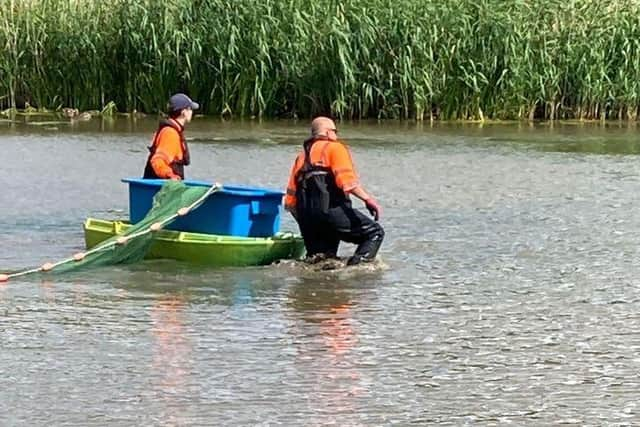Fish removed from lake at Abbey Fields in Kenilworth 'as precautionary measure'
and live on Freeview channel 276
Fish are being removed from the lake at Abbey Fields in Kenilworth ‘as a precautionary measure’.
Following the recent dry weather and dropping of the water levels, Warwick District Council (WDC) officers have been working with a fishery to remove fish from the lake.
Advertisement
Hide AdAdvertisement
Hide AdDrought conditions last summer led to loss of a large number of the lake’s fish with the community stepping in to try and save them.


Following permission from the Environment Agency the surviving fish were transported to a fishery nearby.
Councillor Will Roberts, WDC’s portfolio holder for neighbourhood services, said: “Though by no means as extreme as last year, the warm weather in June and lack of significant rainfall means that we needed to act now to mitigate against any further reduction in water levels caused by climate change.
"We are however pleased to report that the water quality remains good and by keeping fish numbers low it will ensure that the overall health of the lake is maintained.”
Advertisement
Hide AdAdvertisement
Hide AdThe council will continue to monitor the lake, together with the Friends of Abbey Fields and other interested parties.
Last month, residents raised concerns about the number of fish dying in the River Avon at Barford and Kenilworth.
Despite fears that the river had been polluted, The Environment Agency said that reports of fish deaths in rivers and still waters were common during the summer time with warm weather, rainstorms and material being washed into water courses depleting oxygen levels.
